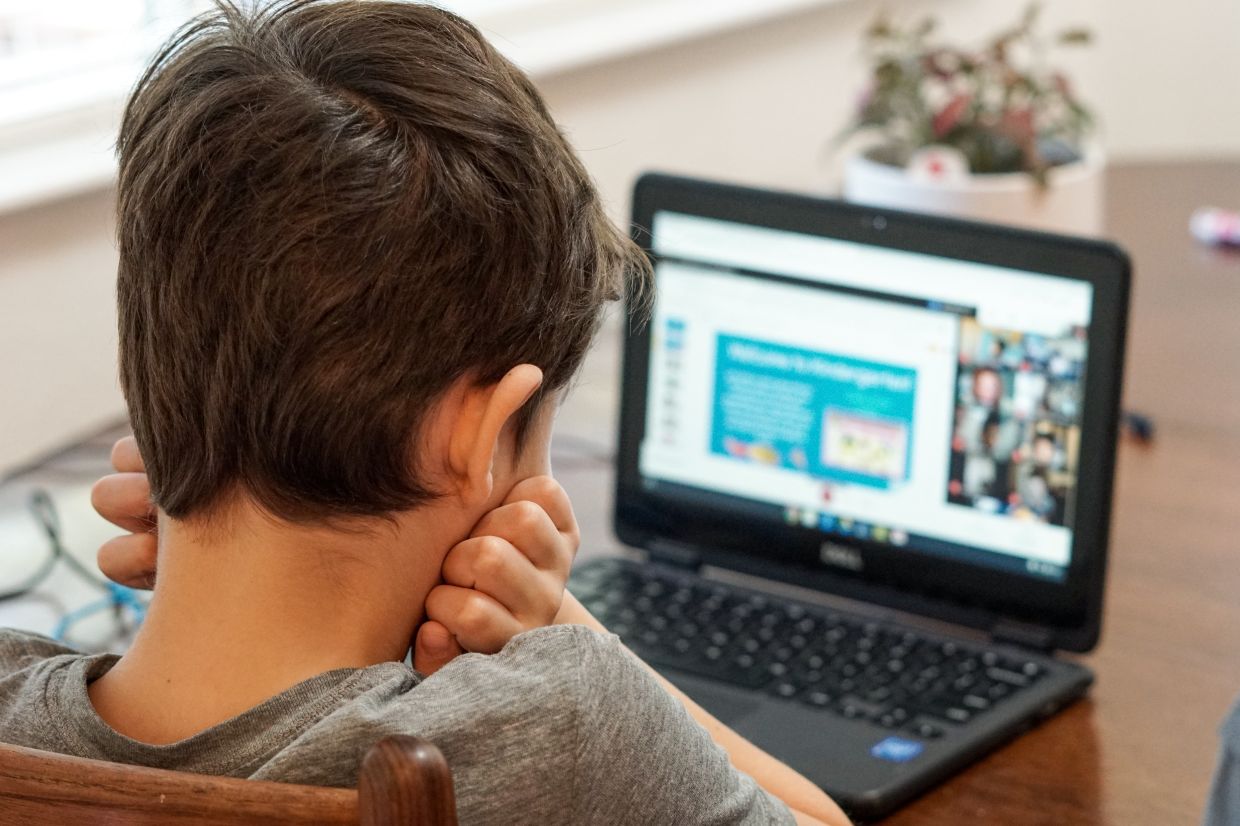Why Should Kids Follow Tech Use Rules?
Following tech use rules is essential for your safety and well-being. By setting guidelines, you protect yourself from online risks. Limits on screen time promote a balance in your life, ensuring physical and mental health. Developing digital skills prepares you for success in a tech-driven world. It’s important to have parental guidance to navigate the digital landscape wisely. Enhancing social interactions and creating a foundation for the future are benefits of following tech rules. Remember, adhering to these rules helps you thrive in the digital world and sets you up for positive experiences.
Key Takeaways
- Protects online privacy and personal information.
- Promotes physical and mental well-being.
- Fosters healthy social interactions and relationships.
- Develops digital literacy skills for future success.
- Ensures responsible and safe tech use habits.
Safety and Security

To guarantee the safety and security of your children while using technology, setting clear guidelines and discussing potential risks is essential.
Implementing safety measures such as installing parental controls, ensuring devices have up-to-date security software, and educating your children about privacy concerns can help create a secure online environment.
When discussing privacy concerns, emphasize the importance of not sharing personal information online, being cautious of who they interact with, and understanding the permanence of their digital footprint.
Encouraging open communication with your children about their online activities can also aid in identifying any potential risks early on.
Establishing trust and creating a supportive environment where your children feel comfortable coming to you with any concerns will help in addressing issues promptly.
Remember, being proactive and involved in your children’s tech usage is key to ensuring their safety and security in today’s digital world.
Healthy Screen Time Habits

Establishing balanced screen time habits is essential for promoting your child’s overall well-being and development in today’s digital age. Setting screen time limits helps guarantee your child engages in a healthy balance of activities both on and off screens. It’s important to encourage a variety of activities to support your child’s physical, emotional, and social growth.
To establish healthy screen time habits, consider creating a schedule that includes designated screen time for educational purposes, entertainment, and social interactions. Be mindful of the content your child is consuming and aim for a mix of educational and recreational materials.
Encourage breaks for physical activity and face-to-face interactions with family and friends to maintain a well-rounded lifestyle.
Protection From Online Risks
When it comes to your child’s well-being in today’s digital world, safeguarding them from online risks is a top priority. Protecting your child’s online privacy is vital to guarantee their safety and security in the digital sphere. Emphasize the importance of not sharing personal information like full names, addresses, or phone numbers with strangers online.
Educate your child on the concept of digital footprints – the trail of information they leave behind through their online activities. Encourage them to think before posting anything online, as once shared, it can be challenging to remove.
Setting clear boundaries on what websites they can visit and who they can communicate with online is essential. Monitoring their online interactions and guiding them on safe online behavior can help mitigate potential risks. Additionally, using parental control tools and privacy settings on devices can provide an extra layer of protection.
Developing Digital Literacy Skills

Improving your child’s ability to navigate the digital landscape with confidence and understanding is essential in today’s tech-driven world. Developing digital literacy skills is fundamental for your child to thrive in a constantly evolving technological environment. By focusing on digital literacy development, you can help your child acquire the necessary tech skills to succeed in school, future careers, and daily life.
Encouraging your child to explore different digital tools and platforms can enhance their problem-solving abilities and creativity. Teaching them how to critically evaluate online information and distinguish between reliable sources and misinformation is important in today’s information age. By fostering a mindset of continuous learning and adaptability, you can equip your child with the skills needed to navigate the complexities of the digital world confidently.
Supporting your child in acquiring tech skills not only enhances their academic performance but also prepares them for the challenges of an increasingly digital society. By providing guidance and resources for digital literacy development, you’re empowering your child to become a responsible and competent digital citizen.
Balancing Virtual and Real Worlds
To help your child thrive in today’s tech-driven world, it’s important to find a balance between their virtual and real-world experiences. With the rise of digital immersion, ensuring your child maintains a healthy real-world balance is vital.
Virtual engagement can offer valuable learning opportunities and entertainment, but excessive screen time can lead to social isolation and physical health issues. Encouraging offline connection is key to achieving this balance.
Plan activities that involve face-to-face interactions, outdoor play, or hobbies that don’t involve screens. Setting designated tech-free times, such as during meals or before bedtime, can also help create boundaries between virtual and real-world experiences.
Fostering Responsible Behavior Online
As a parent, guiding your child in understanding online etiquette is essential in today’s digital age.
Setting boundaries and monitoring their online behavior can help prevent cyberbullying incidents.
Online Etiquette Importance
Encouraging respectful interactions online starts with setting clear expectations and modeling positive behavior for your children. Teaching them about cyberbullying prevention and digital etiquette is essential in fostering responsible behavior online. Cyberbullying can have serious consequences, impacting mental health and self-esteem.
By discussing the importance of kindness and empathy in digital interactions, you can help your children understand the impact of their online behavior on others.
Explain to your kids the significance of using appropriate language and tone in their online communications. Emphasize the importance of respecting others’ opinions, even if they disagree. Encourage them to think before posting or commenting, considering how their words may affect someone else.
Parental Guidance Crucial
Guiding your children’s online behavior is essential for fostering responsible digital citizenship. As a parent, your involvement in setting tech rules and guiding their online activities plays an important role in shaping their behavior.
Establishing open communication channels is key to helping your children navigate the digital world safely. Parental involvement isn’t just about setting limitations but also about having meaningful conversations about online behaviors.
Discuss the importance of privacy settings, the permanence of online actions, and the impact of their digital footprint. By engaging in these discussions, you empower your children to make responsible choices when using technology.
Communication strategies like active listening, asking open-ended questions, and sharing your own online experiences can help foster trust and understanding between you and your children. Encouraging them to come to you with any concerns or questions about their online experiences creates a supportive environment where they feel comfortable seeking guidance.
Cyberbullying Prevention Strategies
How can you help your children develop strategies to prevent cyberbullying and promote responsible behavior online?
Cyberbullying prevention starts with fostering open communication with your kids about online safety. Encourage them to share their online experiences and assure them that they can come to you if they encounter any form of cyberbullying. Teach them about the importance of treating others with kindness and respect, both online and offline.
Another crucial aspect of cyberbullying prevention is promoting peer support among children. Encourage your kids to stand up against cyberbullying by supporting their friends and classmates who may be experiencing such behavior. Emphasize the significance of reporting any instances of cyberbullying to the appropriate authorities, whether it’s school officials or online platform moderators.
Parental Guidance and Monitoring

As a parent, setting clear boundaries and monitoring your child’s screen time is crucial to maintain a healthy tech balance.
Establishing guidelines can help your kids understand the limits and develop responsible tech habits.
Set Clear Boundaries
To guarantee your child’s safe and responsible technology use, it’s essential to establish clear boundaries and provide consistent parental guidance and monitoring.
Setting limits on screen time and the type of content your child can access is vital in promoting accountability and ensuring their online safety. By clearly outlining rules around device usage, you can help your child understand the expectations and consequences related to their tech habits.
Consistency is key when it comes to enforcing these boundaries. Make sure to communicate openly with your child about the reasons behind the rules you’ve set. Encourage discussions about responsible tech use and address any concerns or questions they may have.
Monitor Screen Time
Establishing clear boundaries around screen time and engaging in consistent parental guidance and monitoring are key factors in promoting responsible and healthy tech habits for your child. Limiting exposure to screens is essential for your child’s overall well-being.
Excessive screen time has been linked to various issues like poor sleep quality, decreased physical activity, and potential developmental delays. By implementing parental control features on devices, you can actively manage and restrict the amount of time your child spends on screens.
Parental guidance plays an important role in helping children understand the importance of balanced tech use. By monitoring their screen time, you can make sure that they engage in other activities essential for their growth and development. Setting specific time limits for different types of content and encouraging breaks can also help in maintaining a healthy tech routine.
Impact on Physical and Mental Health
Using technology excessively can have significant impacts on both your physical and mental well-being. When you spend too much time on screens, it can lead to issues like eye strain, headaches, and poor posture, affecting your physical well-being. Your eyes may feel tired, dry, or irritated, and you might experience difficulty focusing. Additionally, sitting or hunching over devices for extended periods can cause back and neck pain.
On the mental wellness front, excessive tech use can contribute to feelings of anxiety, stress, and even depression. The constant exposure to information and social media can be overwhelming, leading to heightened levels of stress and impacting your overall mood. Lack of physical activity due to prolonged screen time can also affect your mental health negatively.
Enhancing Social Interactions
Enhancing your child’s social skills is vital in today’s tech-driven world.
By setting boundaries together, you can help your child balance screen time with real-life interactions, fostering healthier relationships and communication skills.
Encouraging healthy screen time habits can pave the way for more meaningful connections and enhanced social experiences.
Tech and Social Skills
Developing strong social skills is essential for children in today’s tech-driven world, as it can greatly enhance their ability to form meaningful connections and interactions both online and offline. Understanding tech etiquette is important for moving through the digital landscape while also fostering positive social development. Encouraging kids to practice good manners online, such as using respectful language and being mindful of others’ feelings, can translate into improved face-to-face interactions.
Engaging in online conversations provides an opportunity for children to practice communication skills by expressing themselves clearly and respectfully. Encouraging them to actively listen and respond thoughtfully can strengthen their ability to empathize with others, an important skill for building strong relationships.
In addition, participating in collaborative online activities can enhance teamwork and cooperation, essential skills for successful social interactions.
Setting Boundaries Together
Exploring the digital world with your child can be a collaborative effort in setting boundaries that enhance their social interactions. Collaborative decision-making between you and your child fosters a sense of mutual respect and understanding. By involving your child in the process of establishing tech boundaries, you not only teach them valuable decision-making skills but also show them that their opinions are valued.
Creating a family tech contract can be a great way to outline these boundaries clearly. Sit down together and discuss what rules are necessary to establish a healthy balance between screen time and real-life interactions.
Open communication is key in this process. Encourage your child to express their thoughts and concerns regarding tech use, and be willing to listen and compromise when needed.
Healthy Screen Time
To promote healthy screen time that enhances social interactions, it’s crucial to establish clear boundaries and guidelines for tech use with your child.
Setting screen time limits can help guarantee that your child has a balanced routine that includes both tech activities and face-to-face interactions.
Encouraging healthy tech habits is vital for fostering positive social interactions, as excessive screen time can sometimes hinder your child’s ability to engage with others effectively.
Setting a Foundation for the Future
As you lay the groundwork for your child’s future relationship with technology, remember that consistency is key in establishing healthy tech habits early on. By focusing on future preparedness and instilling values of digital citizenship, you’re equipping your child with essential skills for the digital age.
Teaching tech etiquette and emphasizing online safety from a young age will help create a strong foundation that will benefit them throughout their lives.
Encouraging responsible tech use not only fosters good habits now but also sets the stage for a successful relationship with technology in the future. By modeling positive behavior and providing guidance on exploring the online world safely, you’re empowering your child to make informed decisions and interact responsibly in digital spaces.
Frequently Asked Questions
How Can Parents Encourage Kids to Self-Regulate Screen Time?
To help kids self-regulate screen time, you can positively reinforce good habits, set clear boundaries, and keep communication open. Show them by setting a good example yourself. Together, you can navigate tech use responsibly.
What Are the Consequences of Excessive Tech Use on Academics?
Spending excessive time on tech can harm academic performance. Screen addiction may lead to poor focus, decreased productivity, and hindered learning. It’s important to balance screen time with other activities to maintain your school success.
Should Kids Be Allowed to Use Tech During Meals?
During meals, it’s important for kids to be tech-free. This time is for family bonding and mindful eating, screen-free. Engaging in conversation and being present helps create a positive mealtime experience for everyone.
Are There Age-Appropriate Tech Guidelines for Different Ages?
When it comes to tech boundaries, it’s important to set age-appropriate limits. Understanding the needs and capabilities of different age groups will help create guidelines that support healthy tech use habits while fostering development and well-being.
How Can Parents Handle Resistance to Tech Use Rules?
When setting boundaries on tech use, it’s common for kids to push back. Address their resistance with empathy and understanding. Explain the reasons behind the rules and involve them in creating fair guidelines together.
Conclusion
Remember, adhering to tech use rules is essential for your well-being and future success.
By prioritizing safety, developing healthy habits, and honing digital skills, you’re setting yourself up for a balanced and fulfilling life.
Your parents are there to guide and support you along the way, so don’t hesitate to ask for help when needed.
Embrace the opportunities technology offers, but always remember to use it responsibly.
Your future self will thank you for it.

Chad Adan Kace, a young dad from Vermont, shares his parenting journey with a touch of humor and lots of love. Father to a lively baby, he explores the joys and challenges of fatherhood through his stories.







